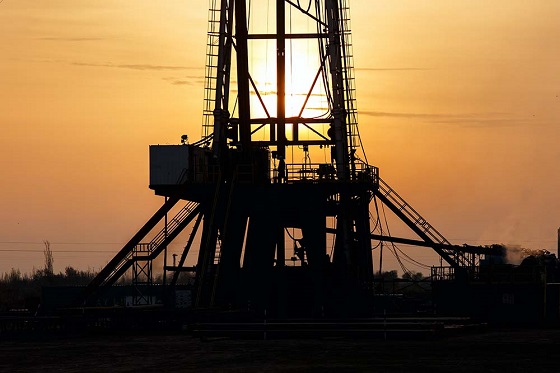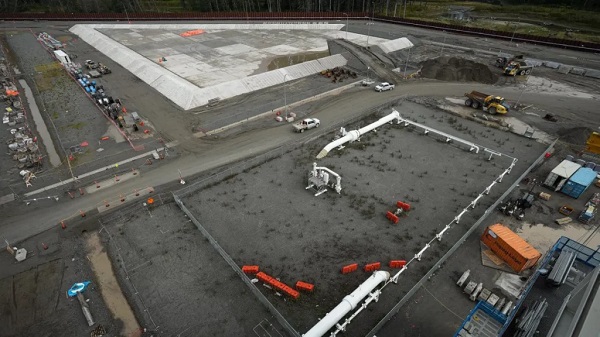Opinion
When the going gets tough, the tough get praying….

Amidst the turbulence of our present medical situation in the world, fear and panic is the easy way out.
We, in Alberta, are blessed with a Premier who has stood up for the common man. He has never advocated tough measures nor walking lockstep with our Prime Minister and Dr. Tam. Dr. Hinshaw has maintained a calm response in the face of public pressure.
People of all stripes have an opinion on the origins, prevention and cure for Covid 19.
We can talk about this until the end of 2020, but when the going gets tough, the tough get praying. Petra, a popular Christian rock group, wrote a song called “Get on your knees and fight like a man.”
It is now time to fight like men and women who believe in God and His power to change the world. The only way we, as human beings can change the world is to stand up the bullies, to those who would force their will on us when we do not and will never agree.
Our provincial leaders are now in that place.
Earlier tonight, November 22, I received a whats app message that stated the following:
A friend whos sister- in -law is a neighbor of Jason Kenny just texted me tonight – she said he is asking for prayer tonight and tomorrow. He is feeling intense pressure to bow to the feds to shut Alberta down.
They are also urging people to send him a quick email….telling them they’re praying for him and stand with him for no further lockdowns. Share with others
Now is the time to fight on our knees for OUR province and country.
We do not want a lockdown like Manitoba or Toronto.
There is NO blood running in the streets, patients are not waiting outside hospitals with covid/flu symptoms and nor are schools shut down with no teachers or students. Stores till have staff and our economy is still alive, for now.
This is NO emergency. But it could be if a lockdown is imposed.
PRAY like your life depends on it, because it does.
If the federal government defies the constitution and forces a lockdown, PRAY still that God will heal and protect as he has promised.
Part of a church? Organize a prayer night or get together with your friends. This is the time to act.
If you do not believe in God…pray to your god, send good thoughts and an email supporting NO lockdown if you feel that is right.
There are no atheists in foxholes. I believe that this is a crucial time in Alberta history.
Be part of the victory over Ottawa and help us protect democracy in our province.
Daily Caller
States Attempting To Hijack National Energy Policy


From the Daily Caller News Foundation
By James V. F. Dickey and Ivan London
The Trump administration is suing Michigan and Hawaii over their stated plans to sue energy companies for alleged climate change harms. Minnesota attorney general Keith Ellison should watch out because he’s probably next.
Minnesota’s lawsuit against energy producers is a naked attempt to reshape national energy policy that will have global repercussions for costs. In other words, bad decisions by Minnesota courts will skyrocket prices for consumers everywhere, which is explicitly against the Trump administration’s energy policies.
Ellison’s lawsuit claims that energy production that results in burning gasoline and natural gas has caused global climate change. Yet Ellison’s beef with the companies isn’t about harm from climate change but what energy producers supposedly have said or not said to the public about the energy they produce for our nation. He also faults these companies for having funded research by organizations that disagreed with the State’s view of the climate science.
Dear Readers:
As a nonprofit, we are dependent on the generosity of our readers.
Please consider making a small donation of any amount here.
Thank you!
It’s part of a larger coordinated effort to use litigation to lay the groundwork for an economy-wide green energy transition and to secure additional income for state budgets. Democratic prosecutors in nine states, more than a dozen cities and counties, and Washington, D.C. have brought similar cases using the same playbook to try to keep the deliberations in state courts. In Puerto Rico, “similar” turned out to be identical, as Judge Aida Delgado-Colon discovered when large blocks of text in a complaint filed on behalf of San Juan matched word-for-word a different lawsuit by 16 Puerto Rican municipalities the year before.
Climate activists found Ellison a willing partner for persecuting energy companies when they sold him on the idea of getting millions of dollars a year for Minnesota by securing a settlement like the tobacco master settlement agreement but with energy companies as the target.
Attorney General Ellison has admitted that Minnesota’s special assistant attorneys general were paid for by the New York University School of Law’s climate-alarmist group, the State Energy & Environmental Impact Center. The purpose of that funding is to advance “progressive clean energy, climate change, and environmental legal positions,” said then-executive director David J. Hayes. If this troubles you, you’re on to something: just imagine the reaction if an immigration-hawk group paid staffers’ salaries at the Minnesota attorney general’s office to coordinate deportations with ICE.
Minnesota’s demand in the lawsuit is mind-boggling: a gag order on energy producers’ speech, a forced “public education campaign” about supposed climate change myths, and an order for the energy companies “to disgorge all profits” because of their speech. The last bit is the kicker: Minnesota’s case is really just a virtue-signaling cash grab dressed in legalese.
If the case continues, Minnesotans will reap the whirlwind sown by their attorney general in the form of unreliable sources of energy, a crippled economy and astronomically high prices for travel and home-heating. Every state in the union would reel from this economic disaster’s ripple effect, which is why 19 states asked the Supreme Court this year to halt these lawsuits by Minnesota and four other states.
Minnesota should not try to set the entire country’s climate policy. Only Congress—where Minnesota and other states have elected representatives representing their interests—can do that. Minnesota’s appellate courts should end this charade—though they have so far balked.
Lawsuits like this one have already been rejected by courts in Maryland, New York, and New Jersey and partially dismissed in Delaware. For the sake of every American, Minnesota judges must follow suit and let federal courts litigate the issues that affect the entire nation. If they don’t, they should expect the Trump administration to come knocking.
James V. F. Dickey is managing attorney for the Upper Midwest Law Center and Ivan London is a senior attorney at the Mountain States Legal Foundation.
Crime
How the CCP’s United Front Turned Canada’s Legal Cannabis Market into a Global Narcotics Brokerage Network

Short-term rentals. Legal weed. Illegal exports. United Front agents built a decentralized drug trafficking network—using Canadian land and export markets to fuel China’s narco-financial machine.
VANCOUVER, Canada — Around the time Canadian police uncovered a massive Chinese drug cash bank in Richmond, B.C.—exposing the so-called Vancouver Model of transnational money laundering—investigators made another stunning discovery that has never before been publicly disclosed.
According to sources with direct knowledge, operatives tied to Beijing’s foreign influence arm, the United Front Work Department, were orchestrating a parallel cannabis trafficking and money laundering operation—leveraging Canada’s legalization of marijuana to export the lucrative commodity to the United States and Japan. The scheme used short-term rental platforms to operate illicit cannabis brokerage houses in Vancouver, aggregating product from vast acreages across Western Canada and shipping it to destinations including Tokyo and New York City. Proceeds were collected in United Front-linked drug cash brokerages in those cities and laundered back through Canadian banks.
As previously reported by The Bureau, the RCMP has observed a two-decade-long consolidation of legal cannabis licenses in British Columbia by Chinese state-linked mafia networks. These groups have exploited illegal migrant labor from Asia—often housed in suburban townhomes and single-family grow-ops across Vancouver—to power what amounts to a parallel, state-enabled narco economy.
But as real estate prices in Metro Vancouver soared—driven in part by drug capital—RCMP investigators noticed Chinese triads strategically selling off high-priced grow-op properties to avoid scrutiny and reinvesting profits in remote farmland across B.C., including in Oliver, Prince George, and the Okanagan Valley.
These rural acreages became production zones. Asian organized crime groups transported cannabis to centralized brokerage houses, where senior Sam Gor figures and affiliated United Front community leaders established hubs for transnational shipment, trafficking, and laundering. The system—structured like a decentralized factory—was engineered to distribute risk and rapidly shift locations.
“They transport it down, and then we started seeing the rise of these brokerage houses again, with United Front control and Asian organized crime links,” a Canadian intelligence source told The Bureau. “New York is a favourite destination. The weed goes out in a variety of routes, the money comes back to be laundered. The process is repeated.”
In the case that triggered the discovery, an RCMP informant observed a steady stream of individuals entering a Vancouver-area home with black garbage bags, heading into the garage, and emerging minutes later with duffel bags of unknown contents. To detectives from E-Pirate—Canada’s largest-ever casino money laundering investigation—the duffel bags looked strikingly familiar.
This was the same method used by Chinese high-rollers supplied through a Sam Gor-linked cash brokerage in Richmond. In that case, associates of Paul King Jin and Jian Jun Zhu received large cash deposits at a bulletproof-glass storefront called Silver International—funds delivered by drug traffickers from across Western Canada. Couriers from Alberta and B.C. drove proceeds into Richmond, dropped off suitcases of cash, and each transaction was meticulously recorded in paper ledgers. Sam Gor would then transfer the equivalent funds into Chinese bank accounts—often linked to fentanyl production.
The warehoused cash at Silver International was also loaned to Chinese gamblers, with Paul Jin himself frequently delivering bundles to parking lots outside River Rock Casino in Richmond, as well as to other government-run casinos in Burnaby and surrounding suburbs. The funds were laundered through B.C.’s provincially regulated gaming system. This was the Vancouver Model. Chinese high-rollers provided liquidity to the system by depositing funds into United Front-linked bank accounts in China, then receiving their payouts in Richmond—delivered in duffel bags of cash.
The discovery of cannabis collector sites near these casinos resembled the other side of the pipeline—this time focused on cannabis rather than cocaine, fentanyl, or methamphetamine—a ‘legal’ narcotics trade now dominated across North America by Chinese organized crime networks operating in tandem with CCP-linked regional officials, according to former DEA Special Operations Division leader Don Im.
In this operation, RCMP investigators recorded license plates of drivers arriving at the suspected brokerage house. They matched many of them to vehicles also seen at Paul Jin’s Richmond boxing gym—an establishment tied to the highest levels of Sam Gor and UFWD figures in Vancouver.
“It was just phenomenal,” a Canadian intelligence source said. “And all of it links back, ultimately, to the exact family and community of people that we’ve talked about for years. You’d see a girlfriend—the girlfriend’s car of some well-known guy that goes to Paul Jin’s gym—would be showing up at this place for five minutes, would drive away, and then somebody else’s car which was associated to this guy’s girlfriend.”
In one RCMP raid on a brokerage house, investigators seized not only cannabis, but packaging materials and branded labels imported from Asia via commercial carriers—designed for a recognizable brand of cannabis sold online.
“What these guys were doing,” the source disclosed, “was securing rental houses through VRBO or other short-term platforms—one, two, three months at a time—and using them as brokerage houses. Then they’d move to another location. And they would bring in labor from overseas.”
That labor, often undocumented immigrants from China and Vietnam, was found living in squalid, makeshift conditions.
“Mattresses on the floor,” the source said. “This is where we get into the CBSA piece—where they found people at these locations who were overstays, undocumented, all the rest of it—and they would boot them out.”
The level of sophistication in these narcotics brokerage operations—essentially the mirror image of Chinese cash collection hubs uncovered by DEA agents in the United States—stunned RCMP intelligence officials.
They noted unintended consequences stemming from cannabis legalization under Prime Minister Justin Trudeau’s Liberal government in 2018.
“Since legalization, Asian organized crime has emerged as the dominant force behind cannabis in Canada. Product from grow ops in the interior of B.C. gets consolidated at a variety of VRBO and short-term rental houses in the Lower Mainland,” one source texted to The Bureau. “Brokers bid on product and provide packaging services for online sales.”
“In one case, the brokerage house was in the east end of Vancouver,” the source, who could not be named, said. “It was equipped with a cryptocurrency ATM. Come in, pay by Bitcoin, leave with your weed.”
The discovery of these covert brokerages prompted RCMP transnational crime investigators to dig deeper.
“And that led to a couple of other investigations,” the source said. “And that led to marijuana that we knew was getting shipped to New York State. They really liked B.C. Bud.”
According to the source, the cannabis was often transported overland across Canada in commercial vehicles, hidden inside consumer goods.
“We found evidence of water coolers and stuff like that, or on-demand water heater systems—gutted and repurposed just to move the product. They’d drive it across the country with this stuff packed inside.”
And Sam Gor operatives transported Canada’s “legal” weed through Ontario and across the border into the United States.
“They would get it over into New York State,” the source said. “And then we actually—years previous to this—we did a money laundering file where we were receiving back the money from those proceeds, coming back through the United States from New York. So it showed you a full circle of it.”

Meanwhile, a source added that a small island in the Fraser River, near River Rock Casino, has drawn law enforcement attention due to warehouses allegedly controlled by Sam Gor associates and underground bankers connected to the Silver International case and United Front networks.
“There’s a whole series of warehouses there that are of extreme interest to CBSA and to us,” a source said, explaining that consumer goods from across Western Canada are exported from the location, with narcotics secreted inside, and product labels altered to evade international customs scrutiny.
“What they did is they secreted—they would cut open the bags and they’d put marijuana inside those bags, and then they were going to export to Japan,” the source said. “So that’s the kind of thing that we’re seeing going on here as well—these brokerage facilities are multipurpose. Some of the product is also moved to other locations where they’re actually altering packaging and everything else to head off detection.”
“That use of brokerage houses—just moving it around—is extremely common now,” the source added. “In fact, that’s been known for years—even over in Australia.” Describing a typical “shore party” tactic, the source said:
“They’ll send a local guy from Vancouver down to Sydney. He’ll stay in a VRBO at Bondi Beach. While he’s there, a UPS package arrives. He takes it to a drop point, gets paid, spends a few days on the beach, and flies home. From the AFP’s perspective, they find that, obviously, quite difficult too.”
Asked whether these Sam Gor and United Front-linked cannabis trafficking and money laundering networks were also dealing in fentanyl, one source responded bluntly:
“No doubt. When you are in one aspect of the biz, what’s the disincentive not to be in fentanyl too? Or wine, or cigarettes.”
Former DEA Special Operations Division leader Don Im, a veteran expert on China’s transnational narcotics and money laundering architecture, reviewed the evidence cited in this story for The Bureau. Decades ago, as a young agent in New York City, Im said he witnessed the early evolution of Triad-linked money laundering networks—surveilling Colombian heroin traffickers forging connections in Chinatown.
Prior to his retirement in 2022, Im said he had direct visibility into how Chinese Communist Party-linked drug barons—operating through Sam Gor and allied Triad syndicates—seized control of cannabis cultivation across much of the world. These networks, he explained, have repurposed the same smuggling corridors, laundering systems, and brokerage house infrastructure to traffic a range of narcotics, from synthetic opioids to methamphetamine.
“This playbook was being mirrored throughout the U.S., Canada, Europe,” Im said of the cannabis brokerage system described in this story.
“The Chinese have become the dominant cultivators of marijuana in North America, in my opinion. They’re doing it in Europe, too. Why? Because it’s legal in most places—with little to no risk of imprisonment. So they’re generating literally tens of billions from marijuana alone.”
Im said U.S. law enforcement began noticing the pattern around the same time Canadian police observed Triads consolidating medicinal marijuana licenses in British Columbia.
“We started seeing it in the mid-2000s—Chinese workers coming into indoor grows, especially in Colorado,” he said. “At first, we thought it was an anomaly. But it wasn’t.”
“Now, China holds an annual hemp trade fair because they’re trying to corner the global hemp industry. They bring in thousands of companies and individuals to expand the global marijuana market.”
According to Im, Chinese Communist Party officials—particularly in provincial governments—view global decriminalization trends as a strategic opening to dominate transnational black markets with minimal legal risk.
“The global drug markets have become the ad hoc bank not just for Chinese citizens seeking to move capital abroad—but for CCP officials, provincial governors, and state-owned enterprises,” Im said. “They use drug proceeds to pay off massive debts, fund capital projects, finance Belt and Road operations, and carry out influence campaigns. It’s a cycle.”
“People think, ‘Oh, marijuana is a benign drug.’ Okay? It’s still a drug. And the value it generates—the profit—is massive,” Im continued. “Even on a conservative estimate, we’re talking half a trillion to three-quarters of a trillion dollars annually. That’s off the streets and across the world—not just Europe and North America.”
“People think I’m crazy when I say it generates that much,” he added. “But the RAND Corporation and the U.N.—they track the value of heroin, cocaine, methamphetamine, fentanyl, ecstasy, and marijuana. That’s the number.”

Recommend The Bureau to your readers
-

 Economy2 days ago
Economy2 days agoCanada’s Energy Wealth Is Bleeding South
-

 Alberta2 days ago
Alberta2 days agoAlberta’s move to ‘activity-based funding’ will improve health care despite naysayer claims
-

 Business1 day ago
Business1 day agoTrump announces UK will fast-track American products under new deal
-

 espionage1 day ago
espionage1 day agoHong Kong Police Detain Relatives of Canadian Candidate Targeted by Beijing Election Interference
-

 International2 days ago
International2 days agoCardinals elect Robert Francis Prevost, first American pope to lead Catholic church
-

 COVID-1924 hours ago
COVID-1924 hours agoCanada’s top doctor signed oath to withhold COVID info that could ‘embarrass’ Trudeau’s cabinet: records
-

 International2 days ago
International2 days agoNew pope elected, white smoke from the Vatican
-

 Energy1 day ago
Energy1 day agoOntario Leads the G7 by Building First Small Modular Reactor






